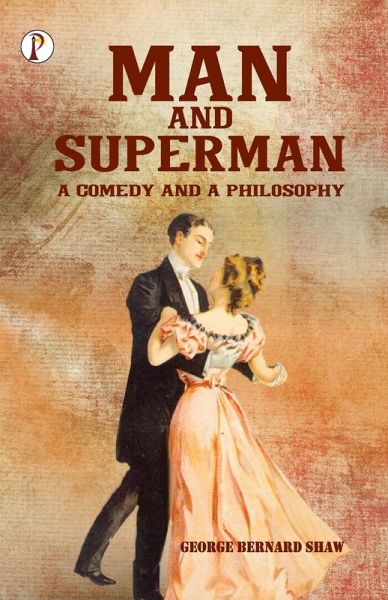
Man and Superman
A Comedy and a Philosophy
Versandkostenfrei!
Versandfertig in 1-2 Wochen
17,99 €
inkl. MwSt.
Weitere Ausgaben:

PAYBACK Punkte
9 °P sammeln!
Man and Superman is a four-act drama written by George Bernard Shaw in 1903. Although Man and Superman can be performed as a light comedy of manners, Shaw intended the drama to be something much deeper, as suggested by the title, which comes from Friedrich Nietzsche's philosophical ideas about the ""Übermensch"". As Shaw notes in his ""Epistle Dedicatory"" he wrote the play as ""a pretext for a propaganda of our own views of life"". George Bernard Shaw (26 July 1856 - 2 November 1950), known at his insistence simply as Bernard Shaw, was an Irish playwright, critic, polemicist and political ac...
Man and Superman is a four-act drama written by George Bernard Shaw in 1903. Although Man and Superman can be performed as a light comedy of manners, Shaw intended the drama to be something much deeper, as suggested by the title, which comes from Friedrich Nietzsche's philosophical ideas about the ""Übermensch"". As Shaw notes in his ""Epistle Dedicatory"" he wrote the play as ""a pretext for a propaganda of our own views of life"". George Bernard Shaw (26 July 1856 - 2 November 1950), known at his insistence simply as Bernard Shaw, was an Irish playwright, critic, polemicist and political activist. His influence on Western theatre, culture and politics extended from the 1880s to his death and beyond. He wrote more than sixty plays, including major works such as Man and Superman (1902), Pygmalion (1913) and Saint Joan (1923). With a range incorporating both contemporary satire and historical allegory, Shaw became the leading dramatist of his generation, and in 1925 was awarded the Nobel Prize in Literature.













